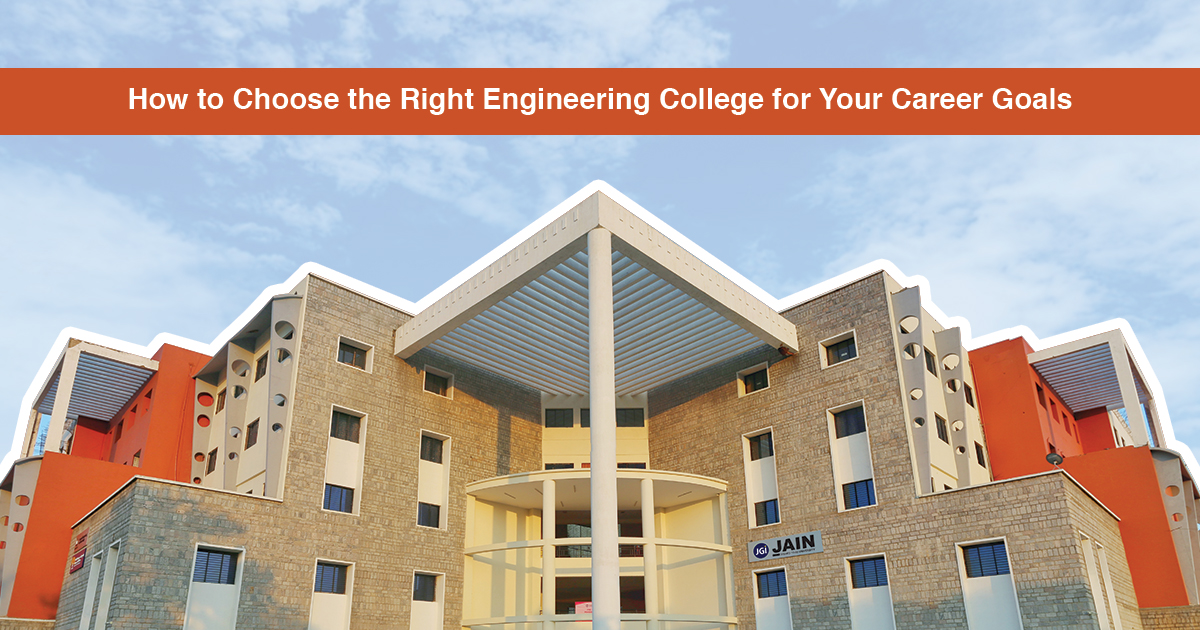FET Blogs


FET Blogs



19 September 2024
Table of Contents:
Selecting the right engineering college is one of the most important decisions that can influence your career trajectory. With numerous institutions offering diverse programs, finding the best fit for your goals involves careful consideration of several factors. Here’s a comprehensive guide to help you navigate this important choice and simplify your process:
Before diving into college options, take some time to clarify your career objectives. No matter if you are interested in mechanical, civil or computer engineering, it is necessary for a student to identify their career goals and make informed decisions.
Engineering is a broad field with many specializations so it is necessary to look for colleges that offer strong programs in your area of interest. Research the curriculum to see if it aligns with your career goal and if it includes practical experience through internships, labs, and projects.
The quality of faculty can greatly impact your engineering career. Review the qualifications and research interests of the professors in your field of interest. Faculty with significant industry experience or research credentials can provide valuable insights and connections that enhance your learning experience.
For those interested in research, select colleges with robust research programs and facilities. Investigate the ongoing research projects and the potential for undergraduate involvement Research experience can be crucial for careers in academia or specialized industry roles.
Modern engineering programs often require state-of-the-art labs, equipment, and software. Ensure the colleges you’re considering have up-to-date facilities that support hands-on learning and experimentation. Good facilities can make a significant difference in your educational experience.
A college with strong industry connections can facilitate internships and job placements. Research the college’s placement record and its relationships with industry partners. Colleges with robust career services and strong ties to the industry can help bridge the gap between education and employment.
The college’s location can impact your overall experience. Consider whether you prefer an urban or rural setting and think about how the location might affect your internship opportunities and lifestyle. Campus life, including extracurricular activities and support services, also plays a role in your overall college experience.
Tuition costs and availability of financial aid are critical factors. Compare the costs of different colleges and explore scholarships, grants, and other funding opportunities. Consider not just the immediate costs but also the potential return on investment based on the college’s reputation and employment outcomes.
Talk to current students and alumni to gain insights into the culture and academic environment of engineering college. They can provide firsthand accounts of their experiences, helping you understand what to expect and how well the program aligns with your goals.
This will give you a sense of the environment, facilities, and campus culture. You can also meet with faculty and students, attend classes, and explore the surrounding area to see if it feels like the right fit.
Choosing the right engineering college involves evaluating how well each institution aligns with your engineering career, academic interests, and personal preferences.
By thoroughly researching programs, faculty, facilities, and financial aspects, you can choose JAIN Faculty of Engineering and Technology to make an informed decision that sets the foundation for a successful engineering career. Remember, this choice is a significant step, but with careful consideration, you can find a college that will help you achieve your professional aspirations and personal growth.
A1: Choose an engineering career by evaluating interests, strengths, and job market trends.
A2: Identify the right engineering by exploring your passions and researching fields at JAIN University.
A3: No single engineering field ranks first, but computer science excels in demand and versatility.
A4: Software or environmental engineering offers good life quality with flexibility and purpose.
Popular Post
17 February 2026
AIE Full Form
10 February 2026
AEIE Full Form
22 January 2026
AE Full Form
16 January 2026
What is Aerospace Engineering?
16 January 2026
What is Chemical Engineering?
Ask an Expert for Free